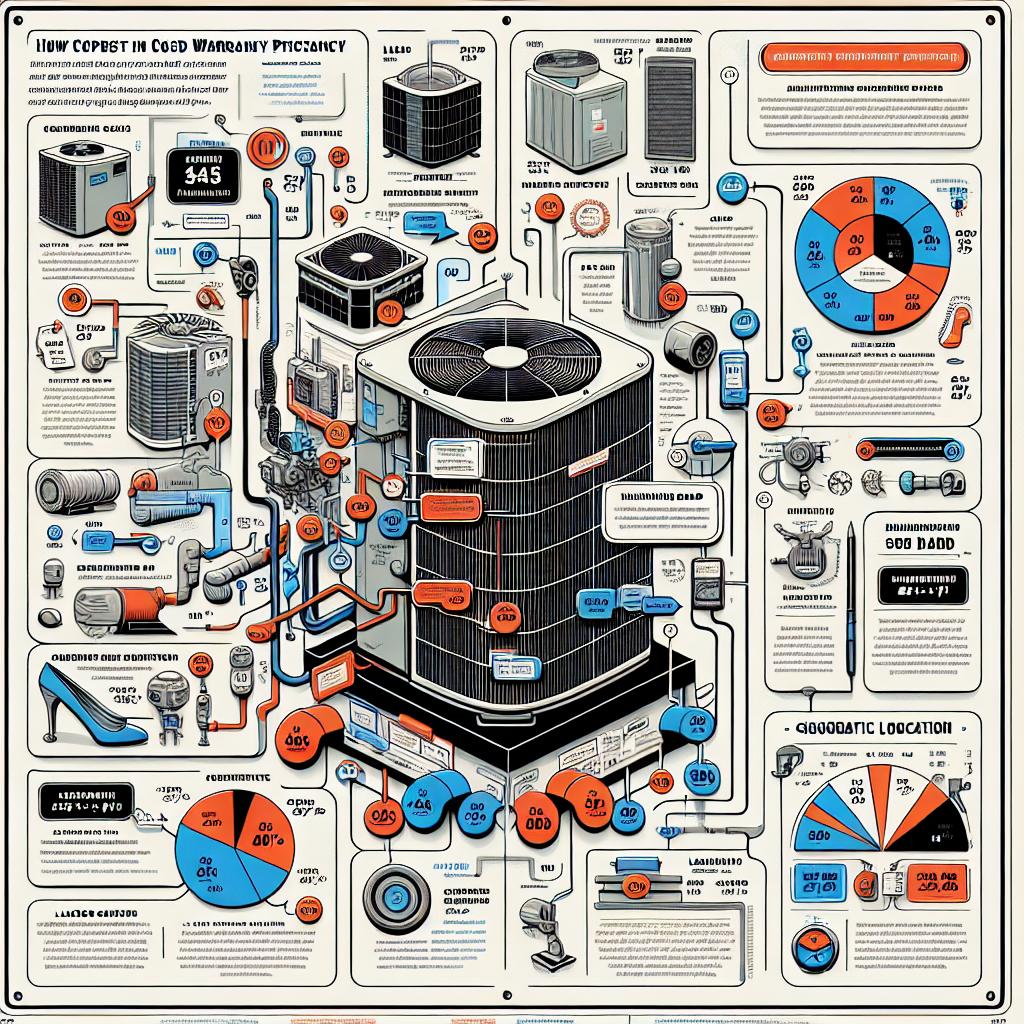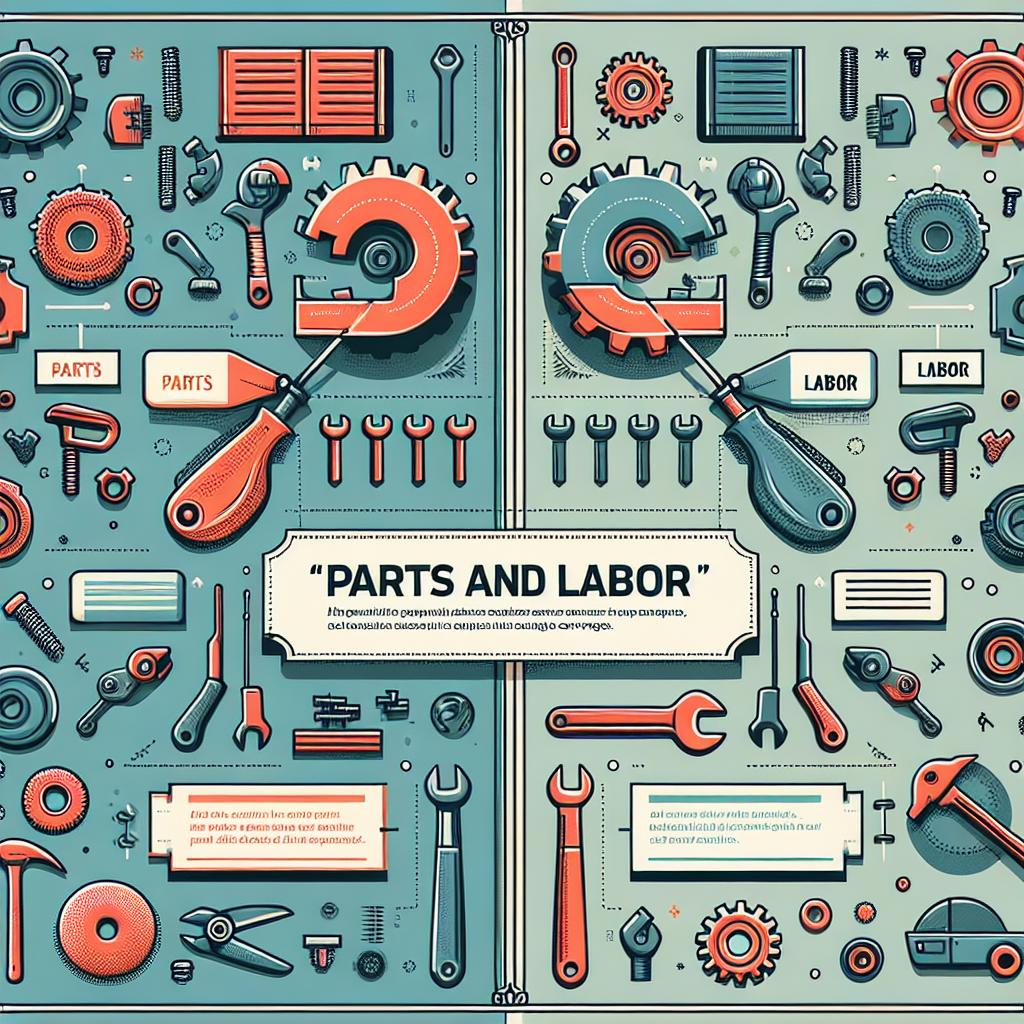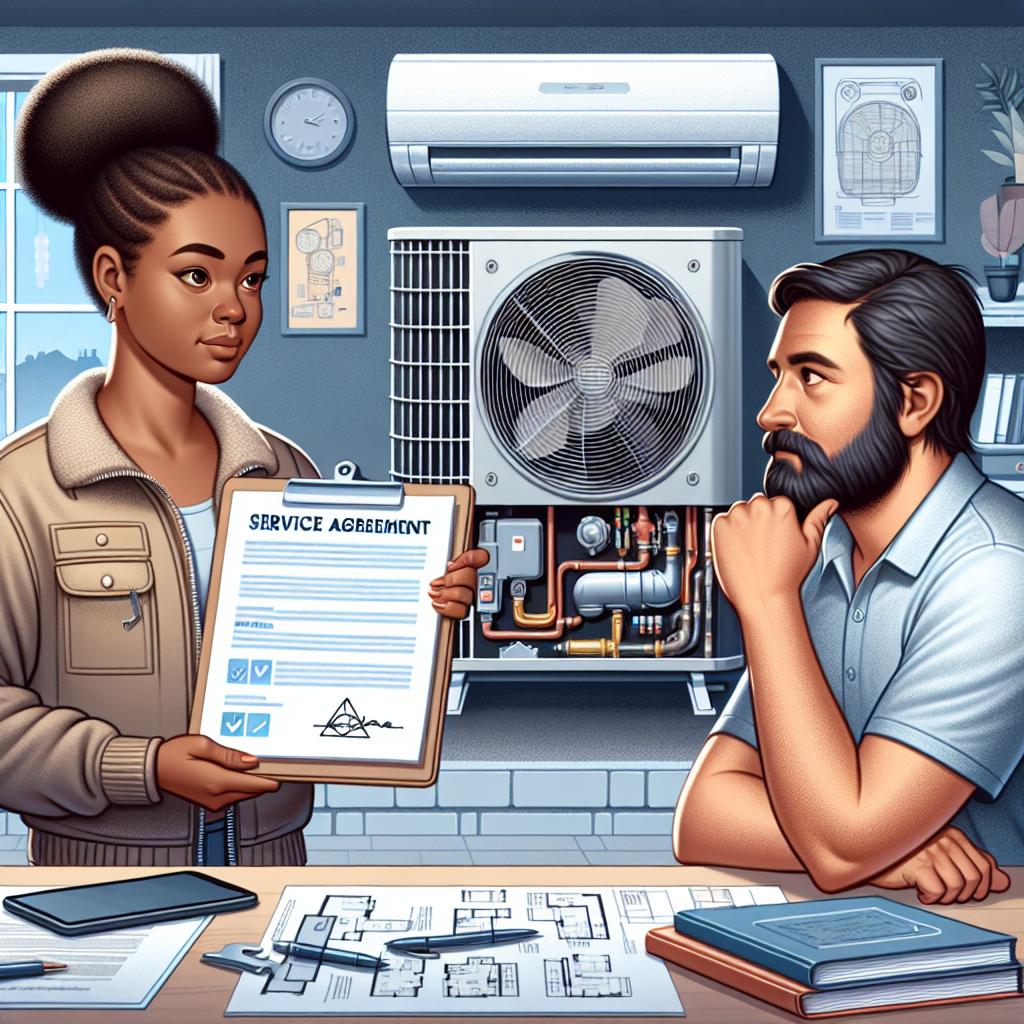When it comes to maintaining a comfortable business environment, one fundamental aspect often overlooked is the importance of a reliable HVAC system. Like any mechanical system, these units require not just regular maintenance but also protection through warranties that cover parts and labor. As businesses invest in efficient heating and cooling solutions, understanding the costs associated with commercial HVAC parts and labor warranty contracts becomes crucial. This article delves into the various factors that influence warranty costs, providing a comprehensive overview that can help facility managers and business owners make informed decisions about their HVAC investments. From the intricacies of contract terms to the scope of coverage, we’ll explore how to navigate the landscape of HVAC warranties and what to consider before signing on the dotted line.
Understanding the Factors Influencing HVAC Warranty Pricing
The pricing of HVAC warranty contracts hinges on a variety of factors that can significantly impact both the cost and coverage options for businesses. One primary consideration is the type of system in question. Commercial HVAC systems, given their complexity and scale, tend to incur higher warranty costs compared to residential systems. Additionally, the age of the equipment plays a crucial role; newer units often come with more generous warranties that are less expensive, as manufacturers are incentivized to back their latest technology. It’s also essential to evaluate the brand reputation and previous claims history, which may influence the terms of the warranty and its associated price tag.
Another important aspect is the scope of coverage included in the warranty. Some contracts only cover parts, while others extend to labor, which can be a significant cost factor for commercial systems. There are various warranties available, and their prices can vary based on the duration of coverage. Contracts can range from one year to ten years, with longer terms typically driving up the overall cost. For instance, a well-structured warranty contract may include:
| Warranty Type | Duration | Typical Cost |
|---|---|---|
| Basic Parts Warranty | 1-2 Years | $500 - $1,000 |
| Comprehensive Parts & Labor | 5 Years | $2,500 - $5,000 |
| Extended Plan | 10 Years | $8,000 – $12,000 |
Ultimately, understanding these factors will enable businesses to make informed decisions when selecting warranty contracts that provide not just adequate protection but also a reasonable investment return over time.

Breaking Down the Components of Parts and Labor Coverage
Understanding the intricate details of parts and labor coverage is essential for making an informed decision regarding a commercial HVAC warranty. This type of coverage typically encompasses a range of components that protect your investment from unexpected repair costs. Here are some key elements often included in such warranties:
- Parts Coverage: This covers the critical components of your HVAC system, such as compressors, evaporators, and condensing units.
- Labor Costs: This includes the expenses associated with the installation, repair, or replacement of covered parts.
- Service Call Fees: Many contracts waive initial service call fees, ensuring that any assessment of issues is at no extra charge.
- Urgent Repairs: Some plans provide priority service for urgent repairs, minimizing downtime.
The costs associated with parts and labor coverage can significantly vary based on several factors, including system complexity, warranty duration, and the specific components included. Many providers offer tiered plans, allowing businesses to choose coverage that fits their budget and risk tolerance. Below is a simple overview of potential costs:
| Warranty Length | Basic Coverage Cost | Comprehensive Coverage Cost |
|---|---|---|
| 1 Year | $500 | $800 |
| 3 Years | $1,200 | $1,800 |
| 5 Years | $1,800 | $2,800 |

Assessing the Long-Term Benefits of Warranty Contracts
When investing in commercial HVAC parts and labor warranty contracts, it’s essential to evaluate their long-term value. These agreements often provide significant peace of mind, allowing business owners to focus on their core operations instead of worrying about unforeseen repair costs. The benefits can include:
- Cost Predictability: Warranty contracts can help you budget effectively by minimizing unexpected expenses.
- Extended Equipment Life: Regular maintenance and prompt repairs under warranty can prolong your HVAC system’s lifespan.
- Increased Efficiency: Well-maintained equipment tends to operate more efficiently, leading to energy savings over time.
Furthermore, a well-structured warranty contract can enhance your company’s operational reliability. When HVAC systems are covered, businesses often experience:
- Quick Response Time: Warranty services often prioritize your needs, ensuring minimal downtime.
- Skillful Repairs: Technicians provided under warranty are typically certified and trained, ensuring high-quality service.
- Potential for Lower Insurance Premiums: Some insurers offer better rates for well-maintained systems.
Here’s a simple overview of potential long-term savings associated with warranty contracts:
| Benefit | Estimated Savings |
|---|---|
| Reduced Repair Costs | 20-30% per incident |
| Lower Energy Consumption | 10-15% yearly |
| Longevity of Equipment | 5+ years |

Tips for Negotiating the Best HVAC Service Agreements
When negotiating HVAC service agreements, it’s essential to clearly outline your expectations and requirements. Start by assessing your specific needs; consider factors such as the size of your commercial space, the type of HVAC system in use, and your desired level of service. To facilitate discussions, prepare a list of must-haves and nice-to-haves. This could include items such as:
- 24/7 emergency service availability
- Regular maintenance schedules
- Response time for service requests
- Parts and labor coverage specifics
Additionally, always request multiple quotes to compare different service plans. Don’t hesitate to negotiate terms that align with your budget while ensuring quality service. Keep an eye on the details such as contract length, renewal terms, and any hidden fees. Including a termination clause can also be beneficial if the service does not meet expectations. Below is a quick comparison table highlighting key components to consider in your agreement.
| Component | Description | Market Average Cost |
|---|---|---|
| Emergency Service | 24/7 availability for urgent repairs | $150/hr |
| Annual Maintenance | Routine check-ups and servicing | $300 – $500/year |
| Parts Warranty | Coverage for defective components | 2 – 10 years, varies by manufacturer |
| Labor Warranty | Guarantee for installation and repair work | 1 – 5 years |
Q&A
Q&A: Understanding the Costs of Commercial HVAC Parts & Labor Warranty Contracts
Q1: What exactly is a commercial HVAC parts and labor warranty contract?
A1: A commercial HVAC parts and labor warranty contract is an agreement between a business and an HVAC service provider that covers repairs, replacement parts, and labor costs for heating, ventilation, and air conditioning systems. This warranty serves as a protective measure, reducing unexpected expenses related to HVAC system breakdowns and malfunctions.
Q2: What factors influence the cost of these warranty contracts?
A2: Several variables come into play when determining the cost of HVAC warranty contracts. Key factors include the size and complexity of the HVAC system, the specific components covered, the age of the equipment, service provider reputation, and the geographical location of the business. Higher coverage and longer contract durations typically lead to increased costs.
Q3: How much can I expect to pay for a commercial HVAC warranty?
A3: Costs can vary widely based on the factors mentioned above. Generally, businesses can expect to pay anywhere from $1,000 to $5,000 annually for comprehensive parts and labor warranty contracts. Smaller systems may have lower costs, while larger, more complex systems may require higher investment.
Q4: Are there any additional costs I should be aware of?
A4: Yes, while the warranty covers certain aspects, there may be additional costs associated with maintenance visits or inspections that are not included in the warranty contract. Some providers may also offer add-ons or upgrades for specific equipment, which can further affect the overall price.
Q5: Is it worth investing in a parts and labor warranty contract?
A5: The value of an HVAC warranty contract largely depends on your specific situation. If you operate in an environment where HVAC performance is critical, or if your system is older or prone to issues, a warranty can provide peace of mind and financial protection. However, businesses with newer, reliable systems may find that regular maintenance suffices, making a warranty less essential.
Q6: Can I negotiate the terms or price of a warranty contract?
A6: Absolutely! Many HVAC service providers are open to discussing terms, which can lead to tailored contracts that better fit your business’s needs. Don’t hesitate to compare offers from different providers, as this can often lead to better deals and customized coverage options.
Q7: How can I ensure I choose the right warranty provider?
A7: Research is key. Look for providers with a solid reputation in your area, read customer reviews, and ask for references. Make sure to thoroughly compare the terms of various contracts, paying close attention to what is covered, response times, and any exclusions. A quality provider will be transparent and willing to answer all your questions.
Q8: What happens if I need to make a claim under the warranty?
A8: In the event of a system failure or requirement for repairs, you would contact your warranty provider to initiate a claim. Most warranties have a straightforward claims process; however, it’s vital to review the specific procedures outlined in your contract to ensure smooth handling of your request.
Wrap-Up: Knowing the ins and outs of commercial HVAC parts and labor warranty contracts can save you from unpleasant surprises down the road. By considering the costs and implications, you can make an informed decision that balances your business needs with financial prudence.
In Conclusion
navigating the realm of commercial HVAC parts and labor warranty contracts can seem daunting, but understanding the cost implications is key to making informed decisions. With a wide range of factors influencing pricing—from the complexity of the system to the extent of coverage—businesses must carefully evaluate their needs and budget constraints. While the initial investment may appear significant, the potential savings in repairs and increased system longevity can ultimately make these contracts worthwhile. As you embark on this journey, remember to consider not just the price tag, but also the value and peace of mind that a comprehensive warranty brings. After all, a well-maintained HVAC system is crucial for a comfortable and efficient workspace. So, weigh your options wisely, and choose a warranty that not only fits your financial plan but also supports the long-term health of your HVAC investment.

